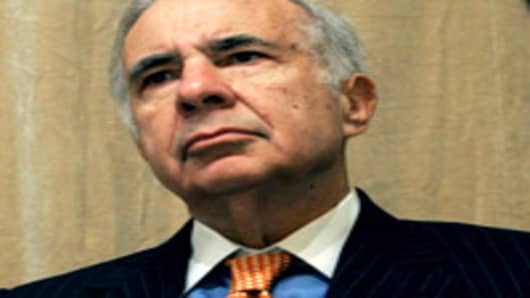But the billionaire investor said he was not interested unless Meister, who manages Icahn's $8 billion fund, was made a director. Icahn, who owns more than 6 percent of Motorola, said he told Motorola he would gladly accept the offer of two seats if the board would also accept Meister.
He said Motorola's plan to break up the company, which is losing cell phone market share, was "long overdue" but questioned why the break up would not happen until 2009.
Last year Icahn failed to win a seat on Motorola's board.
Motorola announced earlier Wednesday that it would split into two publicly traded entities to separate its loss-making handset division from its other businesses, sending its shares up about 5 percent.
The move, which comes amid an intensifying proxy battle against Icahn ahead of a May 5 annual meeting, could be a prelude for a joint venture for the cell phone business, analysts said.
They said separating the cell phone business, which has been losing market share to rivals like Nokia and Samsung Electronics, could help Motorola find a strategic investor, such as among Asian handset makers that are keen to win a bigger share of the US market.
Under pressure from its second-largest investor Icahn to boost shareholder returns, Motorola announced a strategic review in late January but no potential buyers have emerged.
"I suspect it's a prelude for a joint venture for the mobile devices business," said Avian Securities analyst Tero Kuittinen, who sees Chinese and Japanese companies as the top candidates for a venture.
"It might be easier to negotiate with a standalone unit," Kuittinen said. "It's positive news because it shows the company is moving toward a serious restructuring."
Motorola, now ranked third in the global handset market, said the split would take the form of a tax-free distribution to its shareholders and expected it to be completed in 2009.
The company has already started to look for a new head for its mobile devices business.
"We expect this action to enhance recovery in mobile devices and accelerate efforts to attract a new leader," Chief Executive Greg Brown said on a conference call with analysts.
He did not give details on the new capital structures or how shares would be allocated to existing shareholders, saying these details would be worked out in the coming months.


